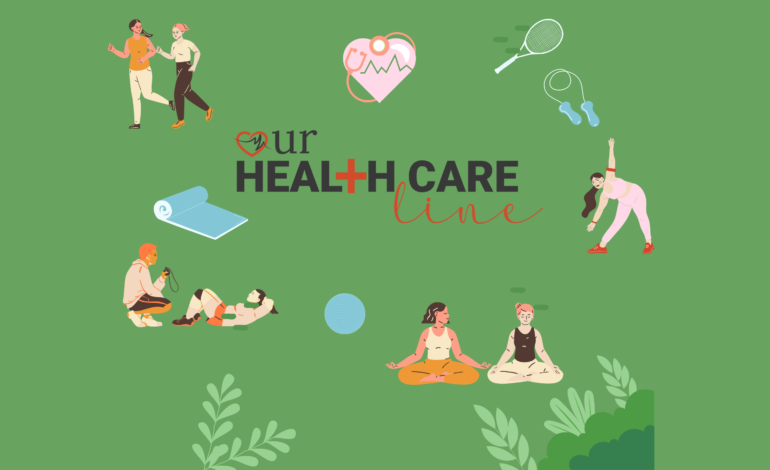
Prioritizing Health, Safety, and Well-Being: A Holistic Approach
Explore the holistic approach to prioritizing health, safety, and well-being. Discover expert insights, practical tips, and FAQs for maintaining a balanced and fulfilling life.
Introduction
In today’s fast-paced world, we often find ourselves juggling various responsibilities, leaving little time for self-care. However, prioritizing health, safety, and well-being is essential for leading a fulfilling life. This article takes a comprehensive look at how you can adopt a holistic approach to achieve and maintain a balanced lifestyle.
The Fundamentals of Health Safety and Well-Being
What is Health, Safety, and Well-Being?
Health, safety, and well-being encompass a holistic approach to living a balanced life. It’s not just about physical health; it includes mental and emotional well-being as well. Achieving this balance is essential for a fulfilling life.
The Importance of Prioritizing Health
Your health is your most significant asset. When you prioritize your health, you set the foundation for a successful and satisfying life. A healthy body and mind can overcome challenges and achieve goals.
1. The Significance of Nutrition
A balanced diet is crucial for overall health. Ensure you consume a variety of fruits, vegetables, lean proteins, and whole grains. Proper nutrition is the fuel your body needs to function optimally.
2. Sleep and Recovery

Quality sleep is vital for health. It aids in the recovery of both your body and mind. Aim for 7-8 hours of uninterrupted sleep each night.
Health: The Foundation of Well-Being
When we discuss health, we’re referring to our physical, mental, and emotional well-being. It’s the cornerstone upon which our entire life is built. Without good health, everything else becomes a struggle.
Physical Health
Physical health is often the most apparent aspect of our well-being. Regular exercise, a balanced diet, and adequate sleep are key components of physical health. Taking steps to prevent illness and seeking medical attention when needed are also crucial. Regular check-ups, vaccinations, and screenings can help detect potential health issues early, allowing for effective intervention.
Physical Activity and Fitness
Why Exercise is Vital

Regular exercise isn’t just about looking good; it’s about feeling great. Engaging in physical activity not only enhances our physical health but also releases endorphins, the “feel-good” hormones. Whether it’s a brisk walk, a challenging workout at the gym, or a fun dance class, moving your body is crucial for holistic well-being. You can also create your ideal fitness home gym if you don’t like crowded places.
Mental and Emotional Health
Mental and emotional health are equally vital. Stress management, mindfulness practices, and seeking therapy when needed can significantly impact mental and emotional well-being. Remember, it’s okay to ask for help when facing emotional challenges.
Managing Stress
Stress Management Techniques
Stress is an inevitable part of life, but it doesn’t have to control us. Techniques like deep breathing, journaling, or simply taking short breaks during the day can help manage stress effectively. Recognize the signs of stress, and don’t hesitate to implement these coping strategies to maintain your well-being.
Safety: A Prerequisite for Well-Being
Safety is a fundamental human need. Without a sense of security, it’s challenging to focus on health or well-being. Safety encompasses various aspects of our lives:
- Personal Safety: This includes protection from physical harm, violence, accidents, and injuries. Taking steps to safeguard yourself, such as learning self-defense or following traffic rules, can significantly contribute to personal safety.
- Financial Safety: A stable financial foundation is essential for overall well-being. Budgeting, saving, and financial planning can help ensure you’re prepared for unexpected expenses.
- Cybersecurity: In our increasingly digital world, safeguarding your online presence is essential. Protect your personal information, use strong passwords, and be cautious with your online activities.
- Workplace Safety: Employers must ensure a safe working environment. It’s essential to be aware of workplace safety regulations and report any concerns.
- Safety in Your Community: Be an active member of your community. Promote safety by participating in neighborhood watch programs and reporting suspicious activities.
- Environmental Safety: This involves preserving and protecting our natural surroundings. Actions like recycling, reducing waste, and conserving energy play a part in safeguarding our planet.
Well-Being: The Pursuit of Happiness
Well-being is a holistic concept that combines physical health and safety with mental and emotional wellness. It’s the ultimate goal of our existence – a life filled with purpose, joy, and contentment. Here are some essential elements of well-being:
- Balance: Striking a balance between work and personal life, between solitude and social interaction, and between rest and activity is key to well-being. Balance fosters contentment and prevents burnout.
- Self-Care: Taking time for self-care is not selfish but necessary. Whether it’s a quiet moment with a book, a bubble bath, or a hike in nature, self-care recharges your physical and mental energy.
- Relationships: Positive relationships are a cornerstone of well-being. Nurture your connections with family and friends, as they provide support, love, and a sense of belonging.
- Purpose: Having a sense of purpose in life, be it through work, hobbies, or volunteering, can provide a profound sense of fulfillment.
- Gratitude: Practicing gratitude can shift your focus from what you lack to what you have. It’s a simple yet powerful way to boost well-being.
Holistic Approach to “Health, Safety, and Well-Being”
To achieve true well-being, it’s essential to take a holistic approach to health safety and well-being. These three elements are intricately interconnected:
- Health Leads to Well-Being: Good health is the foundation of well-being. When you’re physically, mentally, and emotionally healthy, you’re better equipped to enjoy life’s pleasures and tackle its challenges.
- Safety Enables Well-Being: Feeling safe in your environment, both physically and financially, provides peace of mind, allowing you to focus on well-being. A sense of security allows you to explore, take risks, and pursue your passions.
- Well-Being Promotes Health and Safety: When you’re content, happy, and fulfilled, you’re more likely to make healthier choices. You’ll also be more conscious of your safety and less prone to risky behavior.
Spiritual Well-Being
In the quest for holistic health, one aspect that often gets overlooked is spiritual well-being. While physical and mental health are more commonly discussed, nurturing your spiritual self is equally important for achieving balance and fulfillment. Let’s delve into the significance of spiritual well-being and explore practices to enhance this vital aspect of your holistic health journey.
The Significance of Spirituality
Spirituality is a deeply personal and often abstract concept. It doesn’t necessarily revolve around religion but encompasses a broader sense of connection, purpose, and inner peace. Here are a few reasons why spiritual well-being is crucial:
- Finding Meaning: Spirituality helps you discover a deeper meaning and purpose in life. It provides a sense of direction and a framework for understanding your experiences.
- Inner Peace: Nurturing your spiritual self can bring a profound sense of inner peace, calm, and serenity. This can be particularly helpful in coping with stress and life’s challenges.
- Connection: Spirituality often involves a sense of connection with something greater than yourself, whether that’s the universe, nature, or a higher power. This connection can provide solace and strength.
- Resilience: Spiritual well-being can bolster your resilience, enabling you to face adversity with grace and equanimity.
Practices for Nurturing Spiritual Health
Enhancing your spiritual well-being involves a range of practices and the right approach will depend on your beliefs and inclinations. Here are some practices to consider:
- Meditation: Meditation is a powerful tool for quieting the mind, deepening self-awareness, and connecting with your inner self. Regular meditation sessions can help you explore your spirituality.
- Mindfulness: Being fully present in the moment and appreciating the beauty in the simplest things can foster a strong sense of spirituality. It’s about finding the sacred in the everyday.
- Nature Connection: Spending time in nature can be a spiritual experience for many. It allows you to connect with the natural world and gain perspective on your place within it.
- Prayer: If you follow a religious faith, prayer can be a profound way to connect with your spirituality. It provides a means of communication with a higher power.
- Gratitude Journaling: Maintaining a gratitude journal can help you appreciate the positive aspects of life and connect with the abundance surrounding you.
- Yoga: Yoga is a holistic practice that combines physical postures, breathing exercises, and meditation. It’s not only beneficial for your body but also for nurturing your spiritual well-being.
- Community Involvement: Joining a spiritual or community group can provide a sense of belonging and connection. Sharing experiences and beliefs with like-minded individuals can be enriching.

Remember that spirituality is a deeply personal journey, and there’s no one-size-fits-all approach. It’s about discovering what resonates with your beliefs and values. Whether you find spiritual well-being through a religious community, daily meditation, or simply by taking time to appreciate the beauty in the world, nurturing this aspect of your holistic health is a step toward a more balanced and fulfilling life.
Technology and Holistic Health
In our rapidly advancing digital age, technology plays an integral role in our daily lives. It has the potential to either enhance or hinder our holistic health. Let’s explore how technology can be harnessed to promote well-being while maintaining a balanced and holistic lifestyle.
Digital Detox: Finding Balance
With the prevalence of smartphones, social media, and constant connectivity, it’s easy to become overwhelmed by the digital world. Excessive screen time can lead to stress, sleep disturbances, and even anxiety. That’s why it’s essential to practice a digital detox—a deliberate and mindful break from technology. Here are some tips to help you find balance:
- Set Screen Time Limits: Use apps or built-in features on your devices to set daily limits for screen time. This can help you stay aware of your usage.
- Designate Tech-Free Zones: Create areas in your home, like the bedroom or dining area, where technology is not allowed. This can promote better sleep and meaningful family interactions.
- Take Regular Breaks: Incorporate short tech breaks throughout your day to stretch, breathe, and refocus your mind. This can help prevent digital burnout.
- Engage in Offline Hobbies: Rediscover the joy of offline activities like reading physical books, painting, or going for a walk without your devices.
Harnessing Technology for Health and Well-Being

While technology can sometimes be overwhelming, it also offers numerous tools and innovations that can aid your holistic health journey:
- Fitness Apps: There are countless apps that can help you track your exercise routine, monitor your diet, and even provide guided workouts or meditation sessions.
- Telehealth Services: Telemedicine allows you to consult with healthcare professionals from the comfort of your home. This is especially useful for those seeking mental health support or managing chronic conditions.
- Mental Health Apps: Various apps offer resources for managing stress, anxiety, and depression. They can include mood trackers, meditation guides, and virtual therapy sessions.
- Online Support Communities: The internet provides a platform to connect with like-minded individuals who share your health and wellness goals. These communities can offer support, motivation, and valuable information.
- Wearable Devices: Fitness trackers and smartwatches can help you monitor your physical activity, heart rate, and even sleep patterns, providing valuable insights into your health.
- Healthy Eating Apps: Apps can assist you in meal planning, tracking your calorie intake, and making better nutritional choices.
Conclusion
Prioritizing health, safety, and well-being through a holistic approach is a lifelong journey, not a destination. It’s about recognizing that we are multi-dimensional beings and need to take care of all aspects of our lives to experience true well-being.
By finding the balance between work and life, caring for your mental and physical health, and nurturing your spiritual side, you’ll be well on your way to leading a more fulfilling and satisfying life. Embrace the holistic approach, and the results will speak for themselves.
In the pursuit of holistic well-being, remember that “Prioritizing Health, Safety, and Well-Being: A Holistic Approach” isn’t just a title—it’s a guiding principle for a life well-lived.
FAQs
1. How can I start practicing a holistic approach to well-being?
Embracing holistic well-being starts with self-awareness. Identify areas of your life that are out of balance, and gradually make small changes to address them. Start with what resonates most with you.
2. Can a holistic approach truly improve my overall quality of life?
Absolutely. By balancing all aspects of well-being, you can experience a remarkable improvement in your overall quality of life. You’ll find yourself happier, healthier, and more fulfilled.
3. Is professional help necessary for managing mental health issues?
Yes, it’s vital. Seeking professional help for mental health concerns is a sign of strength, not weakness. It provides you with the tools and support needed to overcome challenges.
4. How does nutrition contribute to holistic well-being?
Nutrition forms the foundation of your physical health. A well-balanced diet ensures that your body receives the necessary nutrients to function optimally, promoting holistic well-being.
5. What if I have a busy schedule and struggle to find time for exercise?
It’s common to face time constraints, but prioritizing exercise is essential. Schedule it as you would any other important task. Short, intense workouts or incorporating physical activity into your daily routine can help.
6. Can spirituality be personalized to suit individual beliefs?
Absolutely. Spirituality is a deeply personal journey that can be tailored to align with your unique beliefs, values, and experiences.




